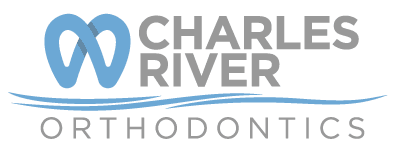
Can a deep bite correct itself without treatment?
Deep bites usually do not correct themselves and, if left untreated, can worsen over time, potentially causing additional orthodontic problems. In adults, factors such as tooth wear or habits like grinding can often make the condition more severe.
Can an adult get treatment?
Teeth can be moved at any age, and many adults seek orthodontic treatment. In fact, about one in three of our patients at Charles River Orthodontics is an adult, with many in their 50s, 60s, 70s, and even 80s. Members of the American Association of Orthodontists (AAO) regularly provide care for adult patients. Depending on your needs, your orthodontist may collaborate with your general dentist and other specialists to ensure you achieve the best possible dental health.
Can I use my insurance for orthodontic treatment?
Many people have dental insurance that includes orthodontic coverage, typically provided through their employer. This insurance may cover a portion or percentage of the orthodontic treatment costs, often with a specific dollar limit or lifetime cap. If your dental insurance is employer-sponsored, your human resources department can provide details about your coverage. Alternatively, you can contact your insurance provider directly. With your permission, Charles River Orthodontics can also help verify your insurance benefits for you.
What complications can arise from an untreated crossbite?
If overlooked, crossbites can trigger jaw misalignment, uneven jaw growth, premature wearing of the tooth enamel, facial asymmetry, and improper chewing, among other dental issues.
What happens if orthodontic problems are not treated?
Untreated orthodontic issues often worsen over time. Without proper treatment, problems like tooth decay, gum disease, bone loss, tooth loss, chewing difficulties, and excessive wear on tooth enamel can occur. In the long run, orthodontic treatment may be more cost-effective than the restorative procedures required to address issues like decayed, worn, or lost teeth, or gum disease.
What is an AAO orthodontist?
Dr. Khedkar is a proud member of the American Association of Orthodontists (AAO), a distinguished organization that only accepts orthodontists who have completed specialized training in orthodontics and dentofacial orthopedics after dental school. By choosing an AAO orthodontist, you can be confident that you’re receiving care from a fully qualified specialist, as the AAO admits only licensed orthodontists to its membership.
What is the difference between a deep bite and an overbite?
“Deep bite” and “overbite” are often used interchangeably to describe a malocclusion in which the upper front teeth excessively overlap the lower front teeth vertically. This is different from an overjet, which refers to the horizontal distance between the upper and lower front teeth. Commonly referred to as “buck teeth,” overjet occurs when the upper front teeth protrude forward at an angle, while a deep bite or overbite happens when the upper front teeth cover the lower front teeth vertically.
What will cause me to have teeth extracted?
Our doctor takes a conservative approach when it comes to tooth extractions, but in some cases, extractions are necessary to achieve the best orthodontic outcome. Whether or not you’ll need teeth removed for braces depends on several factors unique to your individual case. Here are some key considerations our orthodontists evaluate:
- Severity of Crowding: If your teeth are severely crowded and there isn’t enough space in your jaw to properly align them, extractions may be recommended to create the necessary room, especially in cases of significant overcrowding.
- Jaw Size and Shape: The size and shape of your jaw are crucial in determining whether extractions are necessary. If your jaw is small, there may not be enough space to fit all your teeth, leading to the need for extractions.
- Bite Alignment: If you have a severe overbite, underbite, or other bite issues, extractions may be needed to help achieve proper alignment. In some cases, this can prevent the need for more invasive procedures like surgery.
- Tooth Protrusion: If your front teeth protrude significantly, extractions may be recommended to bring them back into a more balanced position and improve your facial profile.
- Orthodontic Treatment Goals: The specific goals of your treatment will also influence the decision. If your objective is to make a significant improvement in alignment or bite, extractions may be necessary for the best result.
- Alternatives to Extractions: In some cases, orthodontists may employ alternative techniques to avoid extractions, such as expanding the dental arch or using interproximal reduction (IPR) to create space between teeth. Modern orthodontic techniques are designed to minimize the need for extractions whenever possible.
- Age and Growth Considerations: Younger patients whose jaws are still growing may have more options to create space without extractions, such as using expanders or other growth-modifying devices. Adults, whose jaws are fully developed, may have fewer alternatives and may need extractions to create the space needed for proper alignment.
When can I stop wearing my retainer?
Retainers are generally needed for life, although the frequency of wear may lessen over time. There are two key reasons for wearing a retainer: first, to allow the bone around your teeth to stabilize after they’ve moved, and second, to maintain the new, healthy positions of your teeth once active orthodontic treatment is complete. Just as your body changes throughout life, so do your teeth. To keep your smile in the ideal position achieved through orthodontics, wearing your retainer consistently is essential for long-term results.
Why is it recommended to see an orthodontist at age 7?
Around age 7, children typically have a combination of baby (primary) and permanent teeth. A check-up during this stage provides valuable information as the permanent teeth begin to replace the baby teeth, and as the face and jaws continue to grow. If any issues are present or developing, Dr. Khedkar and our team will guide you on whether treatment is necessary, when it should begin, the type of treatment recommended, and its estimated duration. Keep in mind, an orthodontic check-up is not the same as starting treatment — only a few orthodontic issues require attention at this age. And remember, not all treatments involve braces. If no treatment is needed at this time, your child can join our Kids Program, where Dr. Khedkar and our team will monitor their growth and development at regular intervals. Should treatment become necessary later on, it can be started at the ideal time for your child.
Why should I get orthodontic treatment?
Orthodontic treatment provides a wide range of benefits, both cosmetic and health-related. Here are some of the key advantages:
- Enhanced Aesthetics
- More Attractive Smile: Orthodontics straightens teeth, closes gaps, and corrects misalignments, resulting in a more beautiful smile.
- Increased Confidence: A better smile can boost self-esteem, helping you feel more confident in both social and professional settings.
- Improved Oral Health
- Easier Cleaning: Straight teeth are easier to brush and floss, making it simpler to maintain good oral hygiene and reduce the risk of cavities and gum disease.
- Reduced Enamel Wear: Properly aligned teeth help prevent uneven wear on the enamel, protecting your teeth from long-term damage.
- Better Functionality
- Corrected Bite: Orthodontics can address bite issues like overbites, underbites, and crossbites, leading to better chewing and speech.
- Jaw Alignment: Aligning the jaw can relieve pain, TMJ disorders, and headaches caused by misalignment.
- Prevention of Future Dental Issues
- Prevents Tooth Loss: Correcting overcrowding or spacing problems reduces the risk of tooth loss down the line.
- Minimizes Injury Risk: Protruding front teeth are more prone to injury, especially in children. Orthodontics can protect these teeth from damage.
- Cost Savings in the Long Run
- Prevents Expensive Procedures: By addressing dental issues early, orthodontic treatment can help you avoid more costly procedures like extractions, implants, or surgery later on.
- Overall Well-Being
- Better Digestion: Properly aligned teeth make chewing easier, improving digestion and overall health.
- Improved Speech: Orthodontic treatment can also enhance speech by addressing malocclusions that may affect pronunciation.
Orthodontics not only enhances the appearance of your smile but also improves your dental health, function, and overall well-being.
